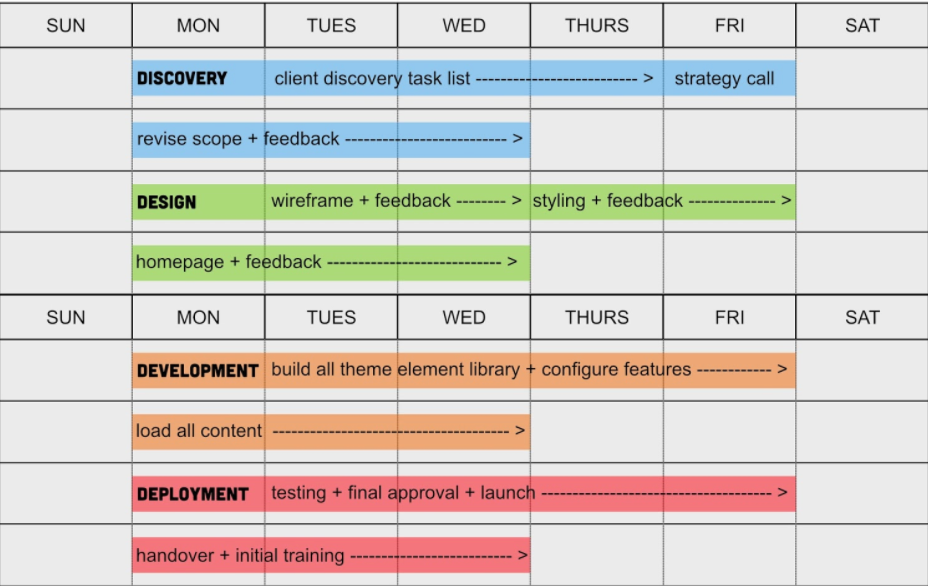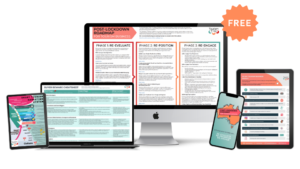There is not doubt there are some “sharks” out in the digital world, preying on the naive and making a killing. We are all for fairness in the Tribe, so we thought we ask a few of our trusted members for their thoughts. Here is the first one from Caolan O’Connor who answers some pertinent questions.
How to select the right developer?
- Let’s frame this from the outset – I think of a website as an additional staff member who works 24/7 for you, has the job of answering all your potential customer’s questions, and can (depending on how it’s set up) take much of the administrative load off your shoulders. From this perspective it’s a living, breathing “thing” (as opposed to a set-and-forget resource). From this perspective the ‘right’ developer should be:
- Someone who takes the time to understand you, your business, your customers and your business goals. With that in mind they can help shape a ‘website’ that helps you move from where you are now, to where you want to me.
- Someone who you can see yourself having a long-term partnership with. Your website will evolve over time and having a relationship with a developer makes that a much smoother process.
- Someone who is willing to give you the keys to your website (domain and hosting credentials, full admin logins, etc). The last thing you want is to build up an asset like your website and be shackled to the one developer for the life of your website (or worse that they disappear and you’re left without ability to access/manage/modify your site). You’re not locked into keeping your mortgage with the one bank, why would you lock in your website with the one developer.
- Similar to above, work with someone who works with open source CMS (like WordPress), which will keep your opportunities open when it comes to evolving your website further.
What are the essential things to ask?
- I’m looking to partner with a web developer who is keen to assist me in growing my business, deliver increasing value to my audience and simplify my business systems. Is that you? Is this the kind of person who is keen to work with you ongoing, or do they sound like someone who’ll build you a website and then just move on to the next client?
- I understand that during a “discovery session” we would unpack what a website project would look like. How do you normally approach this or what kind of questions do you ask? Use this to get a feel for how they communicate; are they interested in you or just pumping out another website; do they have a process for doing this or are they making it up as they go; etc.
- What CMS or software do you use? And is this something that I’ll be able to edit and/or manage as we go forward? Do they use their own in-house system, or something more accessible? Are they open to you having access to your site after it is developed? They may reserve the right to answer this question until after a discovery session and they know more about your needs.
- Are they a solo developer, an agency, or a project manager who outsources some or all of the work? It’s good to know the relationship between the person you are talking to and the person(s) who will be carrying out the work.
- Can you tell me more about your portfolio? You’re not just looking for websites that look great, but for more info on how they match the needs of the client.
- How do you normally communicate during the development process? Some developers are ok trading lots of emails back and forth, some use dedicated project management software and/or ticketing systems, some are happy to sit down with you face-to-face. Ensure that their method fits your communication style ok.
- After the website is launched, what kind of support do you offer? Building the website is only half the task, managing it going forward is just as important (if not moreso). What support do they offer, how much does it cost, what does that include, are they proactive in finding things that need attention or will they leave it up to you, etc.
- What do your standard terms look like? This should include costs, but also things like defining responsibilities for deliverables, change management process, ownership or copyright of different elements, other charges, etc.
How much should I expect to pay?
Your website is a business tool, designed to either increase your revenue (which includes positive branding) or decrease your overheads. Your website needs to be a positive investment.
Ask yourself first… if I had a new website how much revenue would it realistically bring in over the next 12 months. I would halve that figure (because people are generally far too optimistic about the impact a website would have or the work that goes into maintaining content, etc). Isolate the profit from this revenue and it will give you a base budget for your website.
Remove from this costs for hosting, ongoing maintenance support hours or other ongoing/annual fees, updated photo library, maybe some copywriting, etc.
This is how much you can afford to pay for a website.
At the very trim end of the spectrum, and if you’re willing to DIY some of it you could pay:
- $10/yr for your domain.
- $5/month for your hosting
- $60 for a multi-purpose WordPress theme that you customise yourself
- Hours and hours looking through videos, support forums, etc understanding
- how to make the theme do what you want.
- There are many developers who will custom design a site for you between $800 – $5,000+.
A budget of $1,000 – $2,000 plus another $60-$100 per month would give you a tidy and simple website and cover regular expenses for hosting, licencing (SSLs, plugins, etc) and enough ongoing maintenance/support.
How long should it take?
I’ve seen websites take as little as a few hours (4hrs) of dedicated time sitting for a simple site, through to 40+hrs of developer time to design, develop and deploy a bespoke website.
Typically many websites take 4-6 weeks to deliver, allowing for ample correspondence and time to sign off on different elements.
The biggest impacts to the timeline are almost always the business owner providing content in a timely manner. I have seen websites sit on a staging server for up to 12 months while waiting for approved content.
Having a clear idea of the layout of the website (often called a sitemap, outlining which pages exist) and knowing what text and photos goes on which page PRIOR to the develop getting started is a surefire way of ensuring your website build runs as quickly as possible.
A example of a simple build could look like this:
What will I need to supply and do?
- A clear idea of WHY you need a website. Are you trying to increase leads into your business? Are you wanting to reduce the administrative steps required (perhaps via online bookings)? Do you want to appear in Google or are you leveraging other channels? A clear statement that drives the project that your develop can constantly refer to is great.
- A clear idea of WHO you are aiming your website at. Again a clear statement of your avatar or ideal customer that your developer can refer to will help your developer immensely.
- The best way that your developer can contact you. Being able to short-circuit the decision making process as much as possible will maintain momentum with your website build.
- Text required for each page of your website. Text that’s 80% right is better than nothing at all at this stage.
- Images required for each page of your website. Ensure you own the licence to each of these images (they are either yours or you have permission to use them). Find out if your developer will optimise these for you, or if that’s your responsibility (optimising means making the file as small as possible without losing clarity of the image – a smaller file loads quicker and means a faster website).
- Any brochures, booking forms, or other resources that you want on your website.
- Login credentials for your current website and hosting if applicable, your social media channels if required, your Email Service Provider (MailChimp, etc), Google account (for Google Search Console/Webmaster tools, Tag Manager, etc). You will need all these on hand, and should discuss with your developer which they need and or how they will be stored securely.
Hosting – what is a reasonable amount to pay?
Budget hosting can be as little as $5/month. And for many fledgling websites this may be ok (eg, for less than 100 page views per month).
A budget of $10-20 month will typically give you a shared hosting environment with good Australian phone support, local and optimised servers (faster browsing for your visitors), free SSL certificates and ample bandwidth.
In some instances you’ll need to look at a Virtual Private Server (VPS), Cloud Servers, or other arrangements. I suspect this is overkill for many owner-operator websites.
Do it myself vs developer, What are the pros and cons?
If you’re asking this question then I suspect you should engage a developer in all honesty.
Many people would engage a graphic designer to provide you with a base set of visual collateral (logos, business cards, brochures, posters, signs, etc). Once you have this you also have a series of templates that you can tweak to your leisure. You know what size font works on a business card, or you have a layout in your brochure that you can copy.
There are ‘best practices’ in website development that a developer will use as second nature. Leaning on a developer to create your base website and to set up the “tech” and configurations for your website will save you countless hours.
It’s also easy to “design as you go” when you are DIYing. This can lead to one page looking different to another, or even some pages staying in a state of “I can’t quite work that out… I’ll come back it later” for months at a time. Working with a developer can help hold you both accountable to deliver a working site on schedule.
That said, if you have built several websites before then definitely ‘cut out the middleman’.
There are also some courses, or membership groups that will walk you through a DIY process that provide both support (for the non-techs amongst us) and and the freedom to exert complete creative control.
Updates, if I can’t do it myself what should I expect to pay per hour?
Support hours for websites can range between $40 – $160 per hour.
A bundled Maintenance/Support Plan might include daily updates of WordPress Core files and Plugins (when available), 24/7 uptime monitoring, security monitoring, attending to comments, performance monitoring and content updates. Rates for this kind of Plan can range from $30 – $200 per month.
Anything else I think might be valuable to the novice?
A website is only part of a business’ online presence (which also includes social, directory listings, reputation management, video and an increasing focus on chat tools). Beyond that a website creates a great capacity to leverage aspects of business automation or other business systems that make life easier on business owners and more consistent for customers.
Having a vision for HOW the website fits amongst the broader digital ecosystem is essential, as it allows the engineering of these ‘connections’ to occur from the start.
This might include the interconnectedness of your website, your CRM, marketing channels (like Facebook website custom audiences for retargeting), automated booking confirmations and visitor onboarding, customised emails or videos, integration of invoicing and accounting tools, and more.
Sitting down with a digital coach or strategist will help you create that vision, and will save you time and money in the long term with your website.





